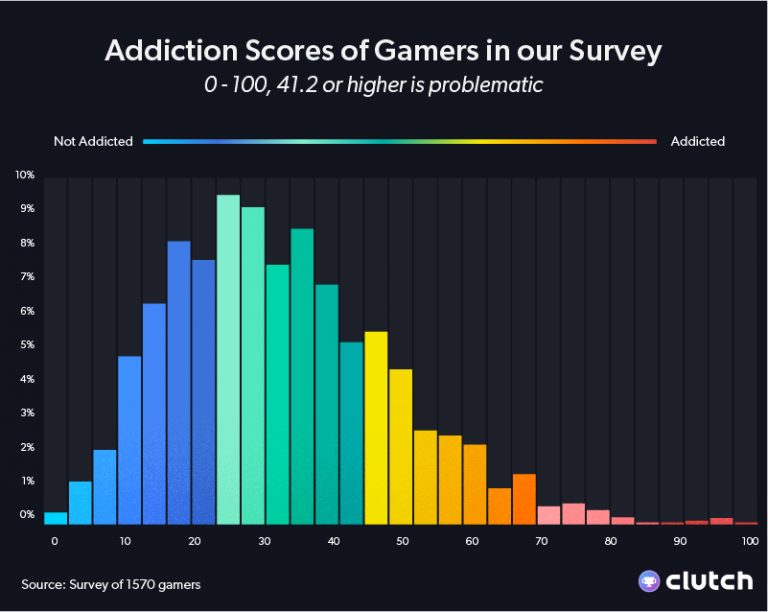Female Gamers More Likely to Be Addicted, Says Study | Game Rant

In 2022, the World Health Organization (WHO) will officially add video game addiction into the 11th revision of the International Classification of Diseases (ICD-11). Based on a study published by Clutch, an app from Android developer Utility Team Labs, Inc. dedicated to video sharing, being a woman is one factor that may make a person more prone to this kind of addictive behavior.
The research, titled "Losing Control: A Study of Video Game Addiction," was released by the Clutch Blog four weeks ago. It surveyed 1,570 users of the app in November 2019 with a modified version of the Greenfield Video Game Addiction Test, a screening tool produced by The Center for Internet and Technology Addiction.
In the reported data, female respondents on average said that they played about 19 more minutes per gaming session, and were two percent more likely to play every day. They also received an average "Addiction Score" of 36.4, about three points higher than men — though still below the "problematic" threshold of 41.2 on the study's 100-point scale.
Just over 1 in 4 respondents scored above that threshold, which the survey says "corresponds with potential video game addiction." Other factors the data breaks down include which games have the most addicted players (with Minecraft leading the pack and surprisingly well above Fortnite, a game sued for being "too addictive"); which employment statuses correspond with higher addiction levels (notably those looking for work, unemployed and not seeking work, and those on disability); and what age groups have higher average Addiction Scores (Gen Z beating out both Millennials and Gen X).

Like with all published research, interested parties should take these results with a grain of salt. In the study methodology portion of the blog post, Clutch reports that nearly 90 percent of its sample was male (only about 7 percent was female), and the average study respondent was about 20 years old. It also says their results were based entirely on self-reported data, though there were a few "reasonable steps" taken to minimize exaggeration and bias.
Not to mention the fact that Clutch forewarns readers that it is "among the largest and most engaged gaming communities," rather than a clinical research organization.
That said there is an interesting point made about the gender demographic, suggesting mobile games with free-to-play, microtransaction-heavy addiction loops (an expensive trend often seeping into mainstream titles) that skew toward female players may be a cause of the higher addiction rates among a vastly smaller portion of the sample.
The suggestion is in-line with a study by Quantic Foundry in 2017 that said women make up 70 percent of the audience for family/farm simulators and match 3 games.
Following the WHO's vote to add video game addiction into the ICD-11, the issue of gaming addiction has become more prominently discussed worldwide — particularly in light of loot box proliferation. However as the Clutch study notes, "only a healthcare professional can accurately diagnose gaming disorder and other behavioral health issues."
With organizations like the United Kingdom's National Health Service planning to open centres for gaming addiction, hopefully more data like this will at least be beneficial in getting help to those who need it.
Source: Clutch

Post a Comment